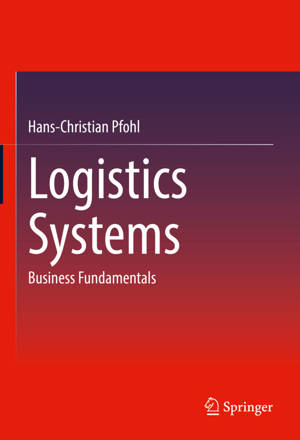
- Afhalen na 1 uur in een winkel met voorraad
- Gratis thuislevering in België vanaf € 30
- Ruim aanbod met 7 miljoen producten
- Afhalen na 1 uur in een winkel met voorraad
- Gratis thuislevering in België vanaf € 30
- Ruim aanbod met 7 miljoen producten
Omschrijving
Cross-divisional and cross-company interrelationships determine the logistics concept, which address work processes, costs and service and determine the analysis and solution of problems in companies.
The related business aspects of logistics systems are presented here. To this end, logistics subsystems, such as order processing, warehousing or procurement and production logistics, are explained in the system context. The necessary requirements for the range of services offered by logistics companies, which lead to an adapted division of labor between supplier, customer and service provider, are also dealt with, as are the overall economic conditions. A further chapter deals with the aspects of international logistics systems, which are gaining in importance due to the increasing global economic integration.
The book, which is equally profitable for students and practitioners, has been revised and updated in the ninth edition. This applies in particular to the statistical evaluations, especially on macroeconomic aspects of logistics, but also to developments in information and communication technology (digitization) relevant to logistics, e.g. RFID or cloud and blockchain technology or current trends in logistics.
This book is a translation of the original German 9th edition Logistiksysteme by Hans-Christian Pfohl, published by Springer-Verlag GmbH Germany, part of Springer Nature in 2018. The translation was done with the help of artificial intelligence (machine translation by the service DeepL.com). A subsequent human revision was done primarily in terms of content, so that the book will read stylistically differently from a conventional translation. Springer Nature works continuously to further the development of tools for the production of books and on the related technologies to support the authors.
Specificaties
Betrokkenen
- Auteur(s):
- Uitgeverij:
Inhoud
- Aantal bladzijden:
- 384
- Taal:
- Engels
Eigenschappen
- Productcode (EAN):
- 9783662643488
- Verschijningsdatum:
- 4/05/2022
- Uitvoering:
- Hardcover
- Formaat:
- Genaaid
- Afmetingen:
- 178 mm x 254 mm
- Gewicht:
- 830 g

Alleen bij Standaard Boekhandel
Beoordelingen
We publiceren alleen reviews die voldoen aan de voorwaarden voor reviews. Bekijk onze voorwaarden voor reviews.











